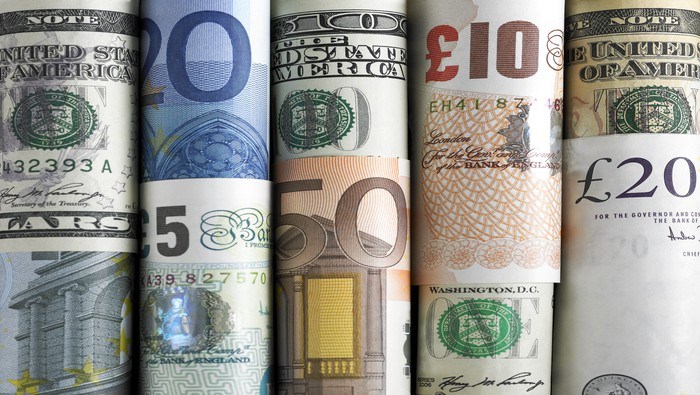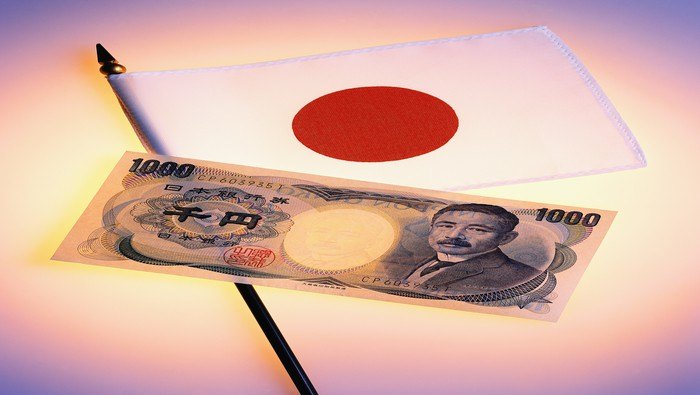Talking Points:
- September has produced some of the largest monthly ranges for USD-pairs.
- EURUSD and GBPUSD have alternated between gains and losses the past four years.
- September marks the first of four consecutive months of gains for the S&P 500.
The beginning of the month warrants a review of the seasonal patterns that have influenced forex markets over the past several years. In our previous study, we decided to once again focus only on recent performance during the QE era of central bank policies (2009-present).
For September, we continue to focus on the period of 2009 to 2014. The small sample size is not ideal, and we recognize that there is increased statistical stability with using longer time periods. However, because of the specific uniqueness of the past six years relative to any other time period in market history - the era of quantitative easing - we've elected to attempt to increase the stability of the estimates with the shorter time period.
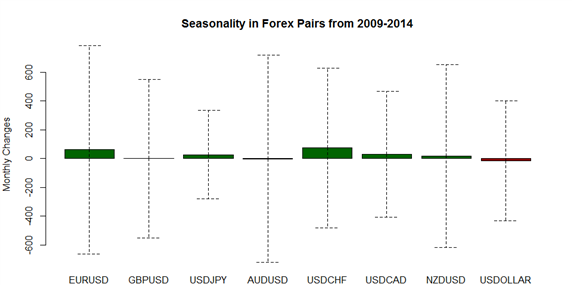
Forex Seasonality in Euro (via EURUSD)
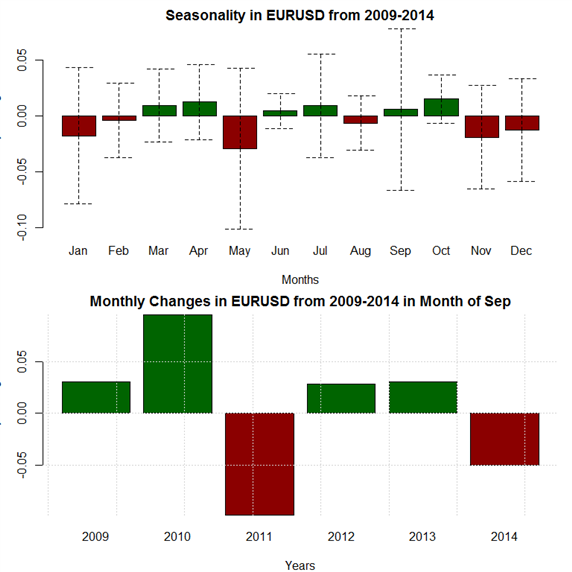
Seasonality tends to favor a slightly stronger Euro in September. Historically, trading ranges in September have been approximately three times the size they were in August. Given recent developments in financial markets (particularly concerns over China), the seasonal tendency for greater volatility at the end of Q3 looks like it should be the baseline expectation.
Forex Seasonality in British Pound (via GBPUSD)
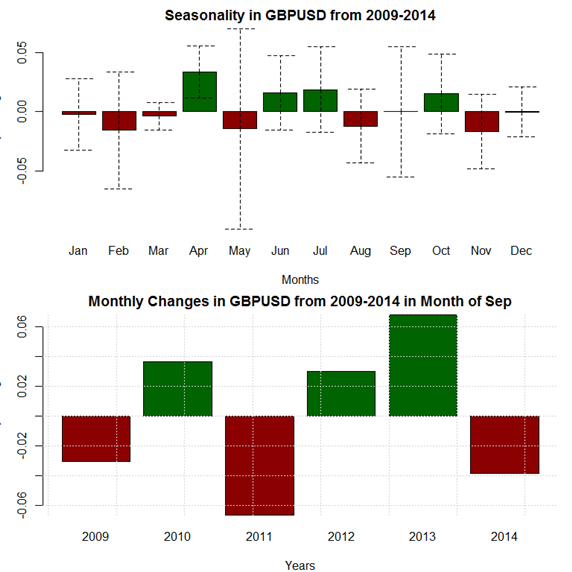
Seasonality tends to favor a barely changedBritish Pound in September. Historically, volatility has doubled August’s range. Over the past six years, gains and losses have been split equally, although last year’s loss in September was the first since 2011. The seasonal outlook is neutral GBPUSD.
Forex Seasonality in Japanese Yen (via USDJPY)
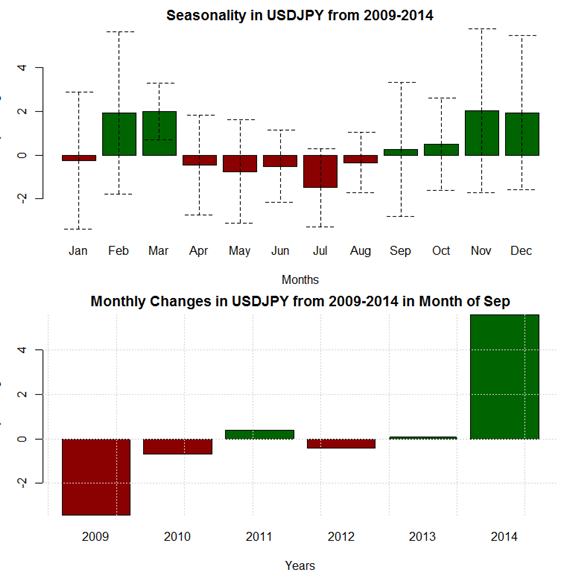
Our seasonal forecast for USDJPY in September is neutral. The average performance calls for higher prices, although the September performance is skewed higher by an outsized gain seen in 2014. From 2010 to 2013, USDJPY gained or loss no more than one big figure. There are opposing forces at work right now in USDJPY, with bulls clinging to hope of a Fed rate hike in September, while bears are honed in on recent weakness in global equity markets.
Forex Seasonality in Australian Dollar (via AUDUSD)
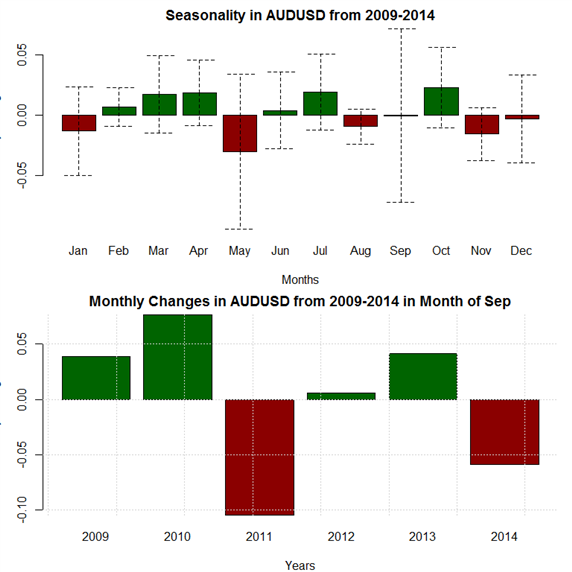
September has produced the largest ranges in AUDUSD during the QE era, with only May – the most bearish month of the year – challenging September’s historical price range. There’s been little consistency in terms of performance year to year, and given the wide price range carved out in September, a neutral outlook is appropriate for AUDUSD.
Forex Seasonality in USDOLLAR
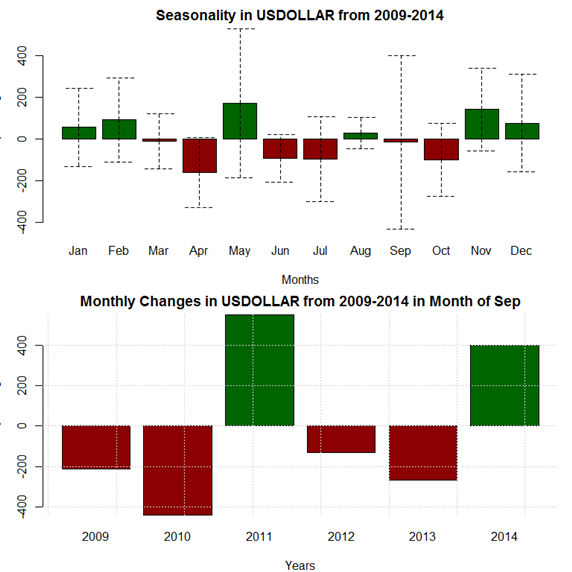
September has been a negative month (but only by a slim margin) for the USDOLLAR Index (an aggregate of EURUSD, GBPUSD, AUDUSD, and USDJPY) during the QE era. After two consecutive losses in 2012 and 2013, September 2014 posted the first rally since 2011. Given the breakdown of the individual components of the index, we’d expect more neutral trading relative to August 2014 to develop this year; losses have developed in four of the poast six years.
Forex Seasonality in New Zealand Dollar (via NZDUSD)
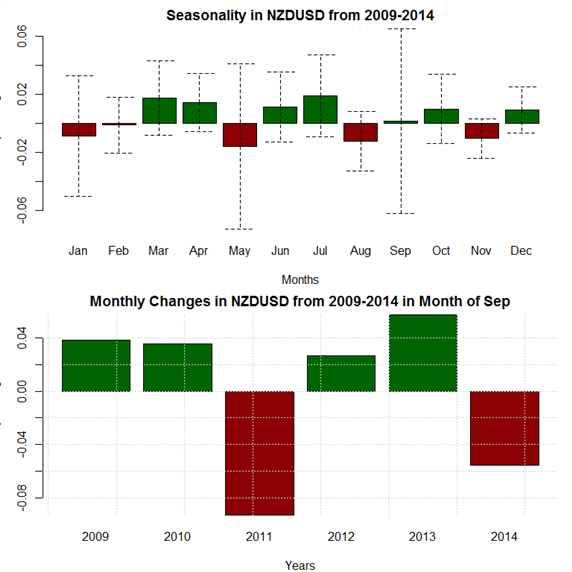
With small gains coming in four of the last six years, and larger losses developing in the remaining two, the average performance for NZDUSD has been neutralized in September. Like many of the other USD-pairs, NZDUSD has seen its largest range of the year carved out in September. Concurrent with our AUDSUD forecast, the seasonal forecast for NZDUSD is neutral.
Forex Seasonality in Canadian Dollar (via USDCAD)
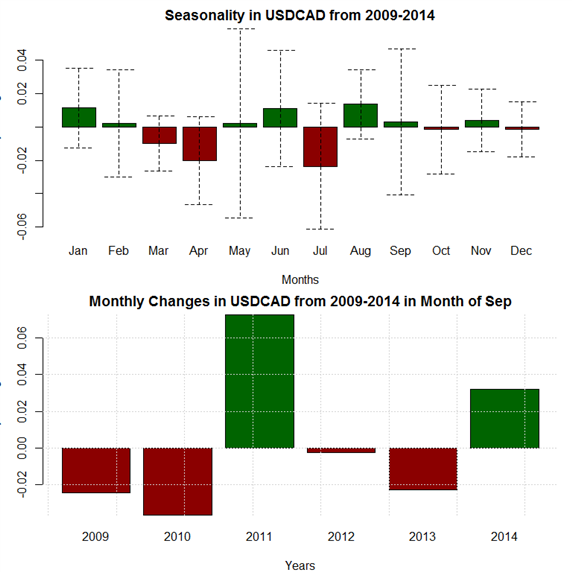
September hasn’t produced much consistency for the Canadian Dollar during the QE era, with losses coming in only two of the past six years, with gains by USDCAD coming in 2011 and 2014. Overall, September has been the second most volatile month of the year as measured by the range of closing prices, trailing only May (which has proven to be one of the more volatile months of the year for most USD-pairs). Our seasonal outlook for USDCAD is neutral.
Forex Seasonality in Swiss Franc (via USDCHF)
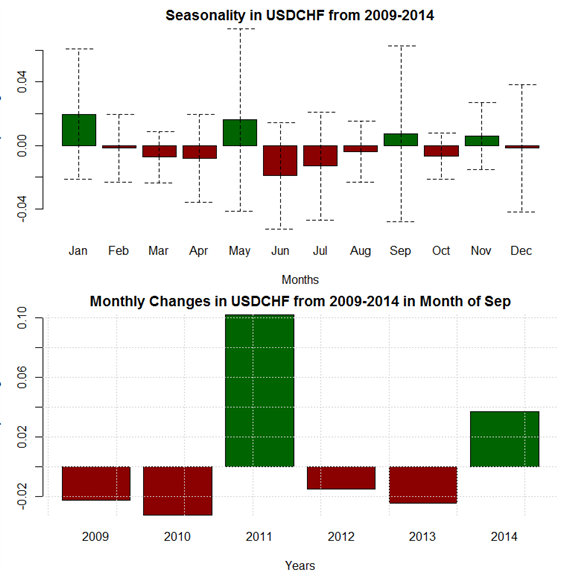
Like the other USD-pairs, USDCHF has typically seen one of its largest monthy ranges range during September over the past six years. Although losses have materialized in four of the past six years, the average performance has been slightly positve during the QE era thanks to an outsized gain in 2011. Taking into account our EURUSD forecast, a more neutral forecast may be deemed appropriate for USDCHF.
Forex Seasonality in S&P 500
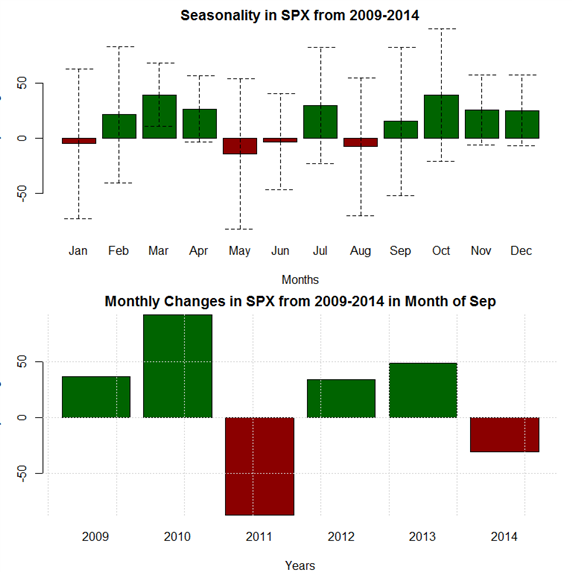
‘Sell in May and go away?’ That’s what we typically hear at the start of the summer months, as investors have picked up on the trend of US equity markets stalling mid-year. This year has been no different: the S&P 500 ended April at 2108, and started September at 1968. If mid-year is truly the bearish stretch of the year, then we may see a bit more sideways or downside price action proliferate the next few weeks; our seasonal forecast is neutral on the S&P500 at the beginning of the month, and increasingly bullish as the calendar nears Q4 – the most bullish quarter of the year during the QE era.
Forex Seasonality in Gold
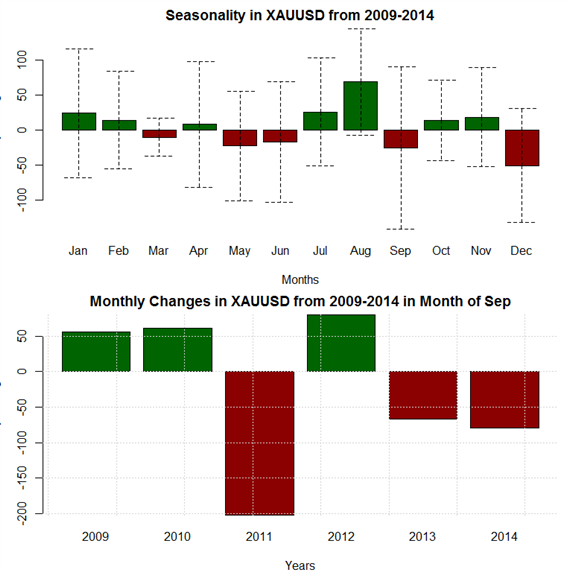
The Gold-USD relationship the past few years has been fairly straightforward: as the US Dollar has strengthened since its 2011 lows, Gold has weakened dramatically from its 2011 highs. September has produced the worst single month (nominally) of the year at any point over the last six years, with September 2011 seeing Gold lose in excess of $200. With three losses over the past four years, our seasonal forecast for Gold is slightly bearish.
Read more: AUD/USD Down Under $0.7000 as HY, EM FX Pressure Remains
--- Written by Christopher Vecchio, Currency Strategist
To contact Christopher Vecchio, e-mail cvecchio@dailyfx.com
Follow him on Twitter at @CVecchioFX




